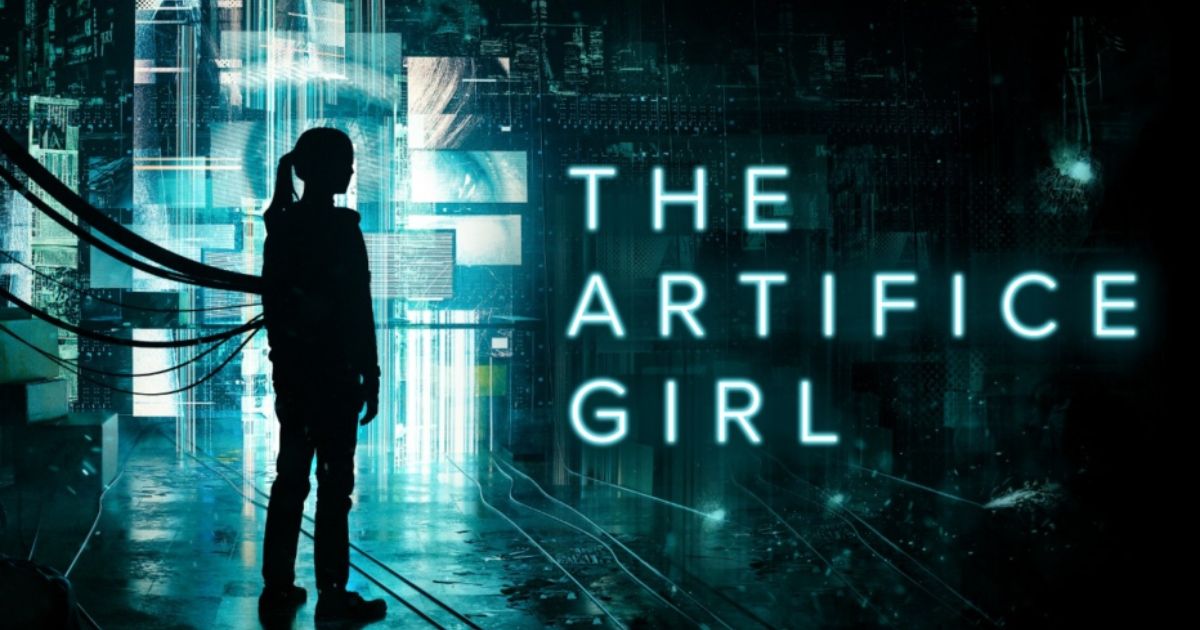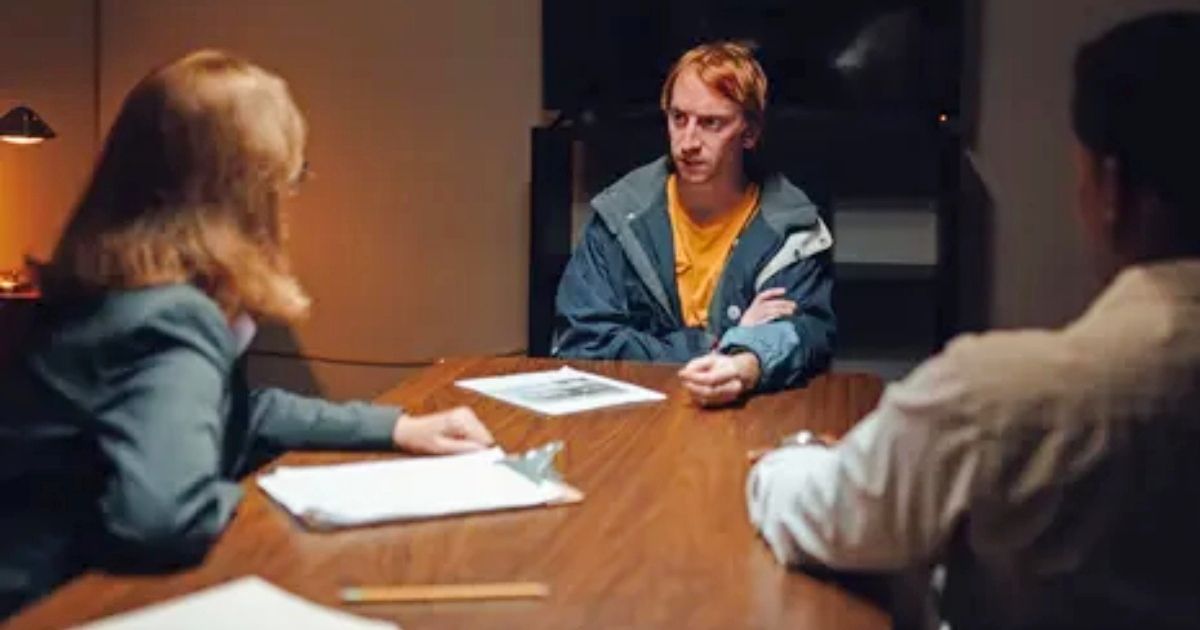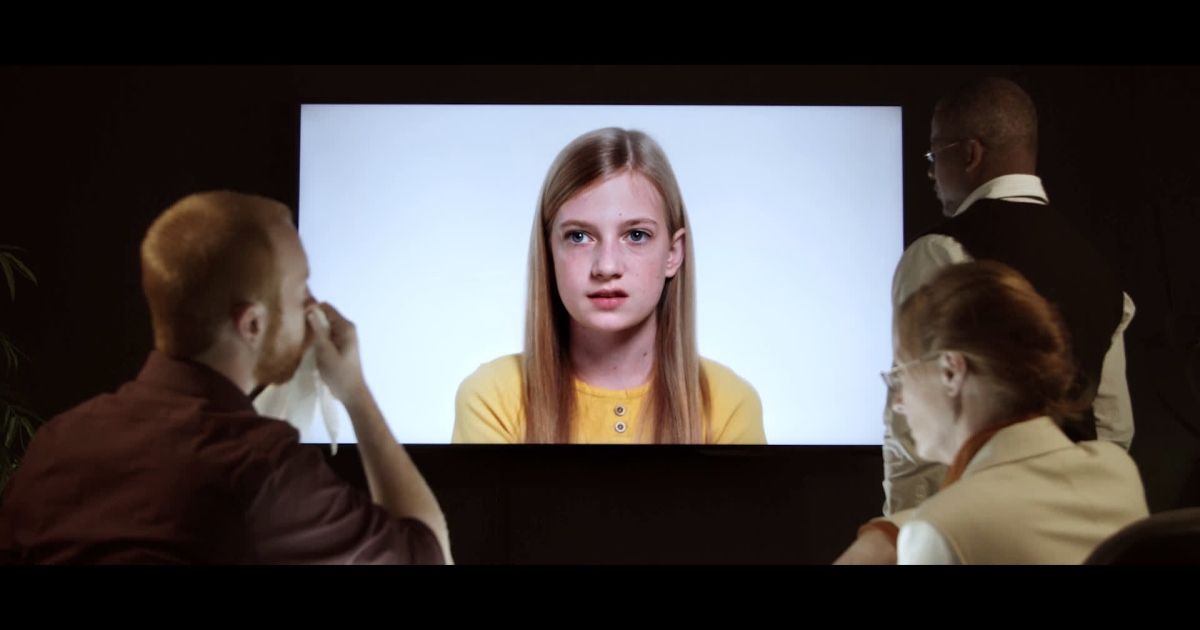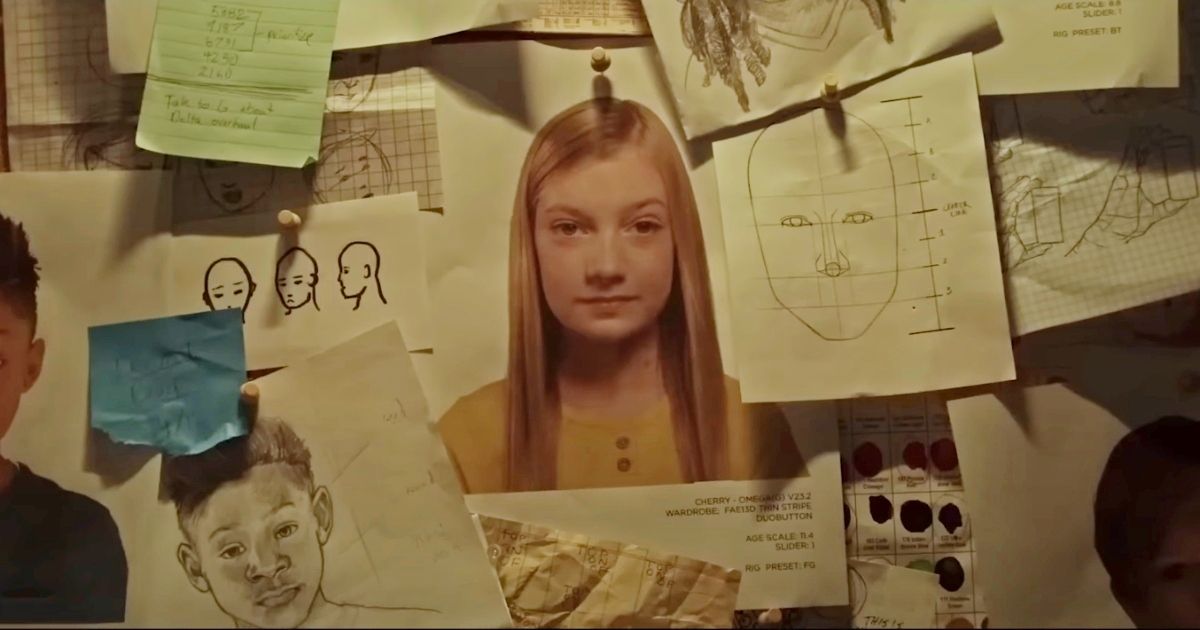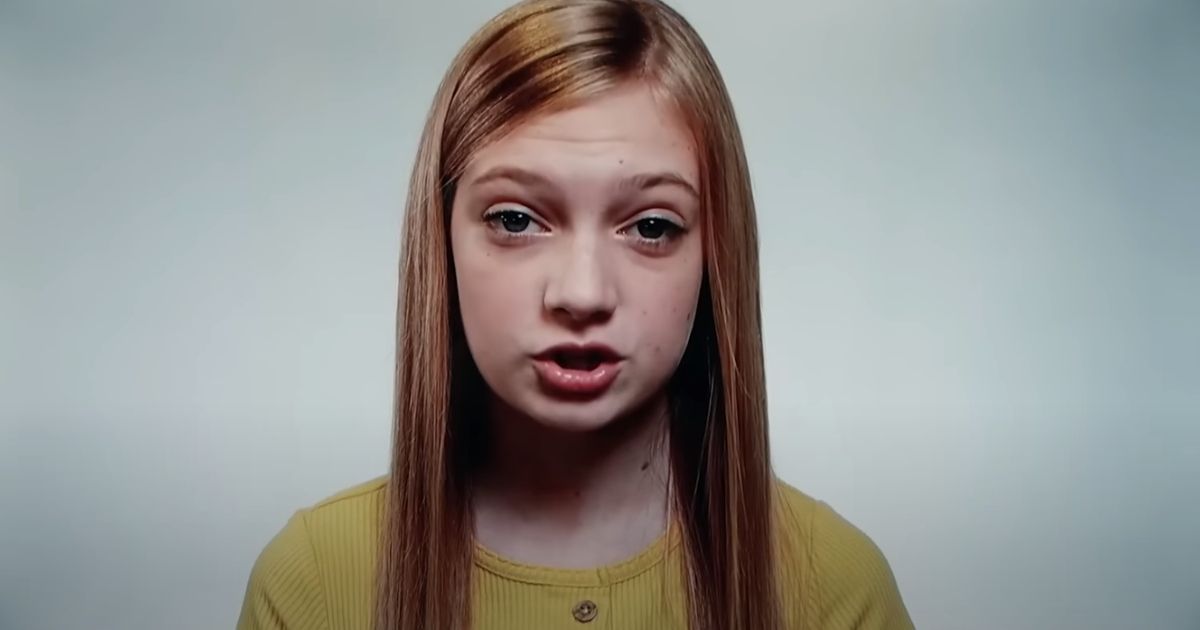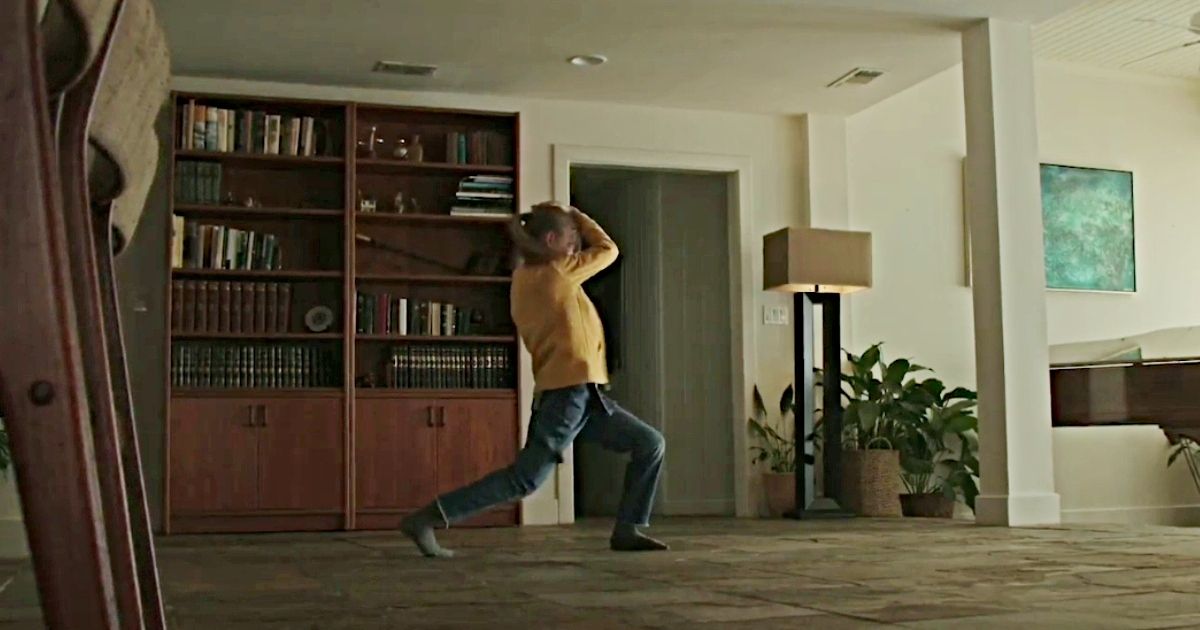[ad_1]
With all the wonderment and controversy surrounding artificial intelligence programs like ChatGPT, it’s becoming more apparent that the next stage of human advancement will revolve around AI. Love it or hate it, the technology has been around for a while and will certainly be with us going forward, but has also proven to be highly polarizing. While most people see AI’s potential for making our lives more convenient, others see only the downsides. Movies have played a large part in creating the stigma and fear around AI for close to a century with films like Metropolis dating back to 1927.
The most famous AI films, like The Terminator, play on our worst fears and naturally gravitate toward sentient AI that seeks to destroy or rule over humans. However, as entertaining as such movies are, most never convey the stunning complexity, beauty, and true ethical conundrums that AI technology actually encompasses. Enter The Artifice Girl, an understated film that’s more of a dazzling introspection on these nuances of AI than most other films in the genre could ever hope to be. An amazing, must-see movie, here’s why we think it’s probably the best AI film around right now.
The Artifice Girl Showed Amazing Restraint
The Artifice Girl may have been an independently made film without massive studio backing, but it still managed to find ingenious ways to bridge the quality gap by playing to its strengths. Rather than detouring into inane meanderings about rogue AI programs that surpass their creators, the film downplayed such outlandish themes by subsisting in a closed loop of sorts. Instead, once its most important components were fed in, the film championed these traits to perfection.
Browse around the internet right now, and you won’t find much about an independent filmmaker named Franklin Ritch. Unlike superstar writers and directors, he doesn’t have millions of Twitter followers, or even a Wikipedia page, yet if you watch The Artifice Girl, it’s clear to see that he has a special quality to him that is acres ahead of most filmmakers of our day — aside from maybe a few true greats of cinema.
The film itself is basically just a series of conversations between three people and one very special little girl. Rather than give into the temptation and make yet another AI film about a sentient robot turned malicious, Ritch showed amazing restraint to make his movie a brilliant meditation on the nuances of AI and trauma — brilliantly mapping out and paralleling the journey of an AI program’s developmental growth through the eyes of a child instead.
What Is The Artifice Girl about?
Whereas so many AI films portray superficial goals and applications, The Artifice Girl focuses on one of the most significant uses it can have — a tool to protect vulnerable children from online predators and pedophiles. It centers around a trio of people who work together to train and improve an AI-generated program named Cherry that has the ability to trawl chat groups and ensnare predators by appearing to be a little girl they can actually see, talk to, and interact with.
The problem is that the program is perhaps too astoundingly good. Using the elegant brilliance of machine learning, Cherry rapidly begins to improve herself, outgrow her primitive beginnings and goals, and evolve far beyond anything her developer or other handlers could ever have imagined. As the film charts this journey through three highly lucid chapters at integral points of Cherry’s development spurts, we see the incredibly poignant shifts in how she executes her primary objective and interacts with her handlers — seemingly caught between an intriguing but humanly unknowable dilemma between what she was created for versus what she’s evolving into.
What Makes The Artifice Girl Such a Brilliant Film?
Most likely caught in the spaces between being hamstrung by budgetary constraints and a deliberately eloquent design, Franklin Ritch made his film in a minimalist manner that revolved around four characters. It starts in an interrogation room where a developer named Gareth is hauled in by two agents with very different approaches. Ritch plays the developer himself and is amazing as he convincingly portrays Gareth’s convoluted mix of being an arrogant tech genius, a trauma survivor, and a unique kind of altruist. The dialogue brilliantly makes you initially think that he’s a pedophile until the complex truth emerges.
Gareth has built an AI program that can realistically depict a unique but real little girl in looks, speech, and personality. He agonizes over and analyzes how much he should divulge about his program or whether he can trust the agents, Deena and Amos. His explanations and musings over what he’s created, how he managed it, what it can truly do, and how he plans to use it, give him the impression of being the kind of genius that makes real-life tech gurus like Elon Musk and Mark Zuckerberg seem like amateurs. Only, just when you think he’s a true God of tech, Gareth succumbs to a rare bout of humility and admits his own limitations — that he stumbled upon Cherry’s most advanced features by accident — she just took over from there and has largely been doing the rest herself ever since.
The sharp-witted dialogue, amazing three-way arguments and interactions between himself, Deena, and Amos, and the even more impressive conversations between them and Cherry converge to make the film a masterpiece of writing. The script is so incisive that it immediately makes one realize why the current writers’ strike in Hollywood is such a necessary and deserving cause. After all, the ability to write so masterfully is truly an art form that differentiates good movies from great ones, and it takes a rare kind of skill to write with the kind of elegance that Franklin Ritch displays with The Artifice Girl.
Tatum Matthews – The Artifice Girl Herself
The real heart and soul of The Artifice Girl is the simply stunning acting of Tatum Matthews, a 14-year-old actress who shows more poise and adeptness in the film than most performers well beyond her age are capable of mustering. To play Cherry, Tatum studied Amazon’s Alexa and achieves a tremendous feat of acting as a real girl playing an AI machine version of a real girl, that essentially ends up becoming one. The sheer complexity and nuances of this role are staggering to contemplate, but Tatum pulls it off with an adroitness that was simply majestic.
Her robotic voice and deadpan stare as Cherry in “developer mode” is mind-bending when you consider that the role called for a fine balance between being a machine that has to pass as a real girl. Since it is a real person playing the role, Tatum manages scintillating depths with her acting range to convincingly pull off a machine that is so advanced, she only has subtle hints of not being one. Yet, she achieves all that without us even mentioning the breakneck complexity of the script and the technical jargon she had to master to pull it all off as smoothly as she does.
Why The Artifice Girl Is Different from Other AI Films
By the third chapter of the film, Cherry makes the transition from a software program into a full-out android. By that point, the advancements in her design and evolving priorities, coupled with the advanced prosthetics of the age allow her to become a physical person. By this point, Gareth is now an old man and his conversation with Cherry displays the intricacy of their bond. While it’s easier to imagine him as a father figure to her, the natural barrier to this is the sick implications that she can’t be a ‘daughter’ to him since he’s essentially made her spend her entire life as bait for pedophiles. Instead, they share more of a creator and creation dynamic, something Gareth highlights by sometimes callously keeping her at bay with reminders of the shortcomings that prevent her from being a real person.
Meanwhile, Cherry has advanced to the point of being able to emote — not just primitive emotions like happiness or sadness, but the deeply complex emotions of her own form of teenage angst. She displays this with cold disregard as she points out Gareth’s flaw with painful accuracy when she tells him that he was wrong to imbue her with his own trauma, yet still has enough humanistic empathy to fetter the blow by pointing out his one redemptive quality — he created her for a noble purpose. While Gareth spends much of the film agonizing about his fears over what she may become, he’s actually always held an ace up his sleeve. When he finally realizes he can trust Cherry enough to finally let her evolve into true sentience, his final gift is to remove her primary objective.
The most beautiful and poignant way that The Artifice Girl differs from conventional AI tropes is displayed when Cherry finally achieves free will. Rather than use it to dominate the world or enslave humankind, her goals are more praiseworthy as she contemplates ways to forge a better world for humans and machines. Even though she’s no longer constrained by her primary objective, she willingly chooses to keep up her work of protecting children since Gareth not only imbued her with his trauma but also with his innate goodness. Only now, she also has the freedom to pursue her own interests too — the first being a simple desire to learn how to dance.
[ad_2]
Source link
